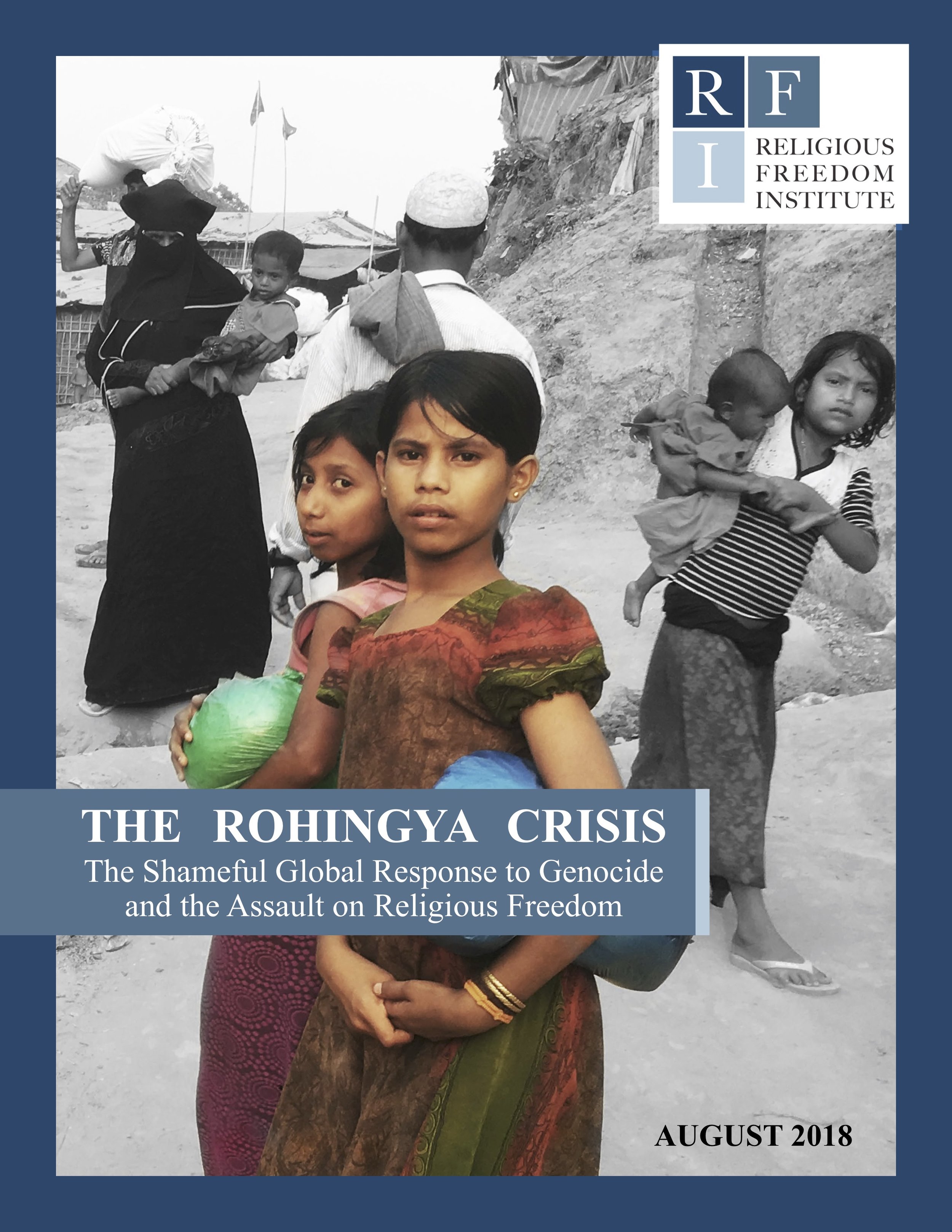Nearly one year ago, on August 25, 2017, a wave of violence was unleashed against Muslim Rohingya in Rakhine State, Burma. Thousands were killed in brutal fashion and more than 700,000 were displaced. In a new report, the Religious Freedom Institute (RFI) considers the facts of what happened in August 2017 and the broader context of religious freedom violations in Burma. The report also puts forward concrete recommendations on what is to be done.
The Rohingya Crisis: The Shameful Global Response to Genocide and the Assault on Religious Freedom adds to the mounting documentation of the plight of the Rohingya, an ethnic and religious minority of Burma (Myanmar) and is a call to action.
This report should serve as a reminder of the needs of hundreds of thousands of Rohingya who flooded into Bangladesh in the aftermath of the Burmese military attacks in August 2017. While the influx of refugees has largely subsided, the needs of the individuals, families, and communities who survived the crimes against humanity, ethnic cleansing, and genocide perpetrated by the government because of ethnicity and religion still remain.
The Rohingya are not alone in their endurance of blatant attacks to their rights to religious freedom. Christians among the Kachin, Chin, and the marginalized Naga communities of Burma face are still facing rights restrictions. They are once again seeing targeted military campaigns, in some cases perpetrated by the very same units who targeted the Rohingya.
This report is in response to the unresolved refugee and humanitarian crisis that extends beyond the Rohingya and threatens to be forgotten. The report provides an overview of the historical, ethno-religious, humanitarian, and international dimensions of this particular crisis, and emphasizes that the overwhelming evidence merits the label of genocide and crimes against humanity be applied to the atrocities perpetrated against the Rohingya by the Burmese military and other actors.
Regardless of what label is applied, the evidence of atrocities against the Rohingya is overwhelming. In light of such evidence, the Burmese government and international community must ask themselves, are they unaware or unconcerned about the genocide being perpetrated against the Rohingya Muslims of Burma?
These violations of religious freedom and acts of genocide against the Rohingya of Burma cannot go unanswered. The international community, individual governments, and faith leaders and their congregants around the world, must not be silent in the face of such a blatant assault on religious freedom and such a violent act of genocide.
THE RFI BLOG

Be More Faithful, Become More Resilient: An Invitation to Religious Institutions

How Soccer Reveals Different Meanings Of ‘Secular’ In France And The US

RFI’s Ismail Royer Meets with Delegation from India

Protecting the Unborn, Mothers, and Medical Ethics: The Stakes of Arkansas’ Amendment

Wisconsin Supreme Court Punishes Catholic Charities for Serving Everyone
CORNERSTONE FORUM

Public Bioethics & the Failure of Expressive Individualism

Religious Liberty in American Higher Education

Scotland’s Kate Forbes and the March of Secularism

70 Years of Religious Freedom in Sweden: Prospects and Challenges


